
































Bodybuilding DVD's
Ronnie Coleman
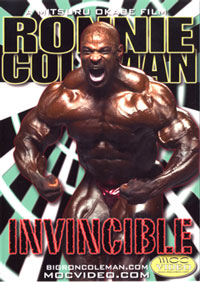
Colossal Workout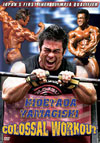
Dennis Wolf
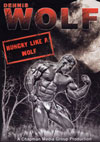
Dorian Yates
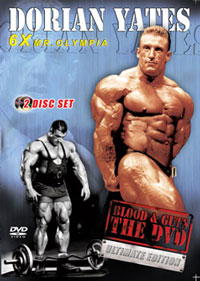
Believe to Achieve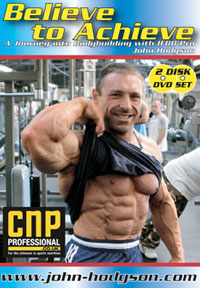
Jay Cutler's house
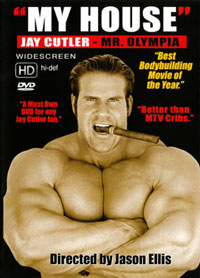
Hard and Heavy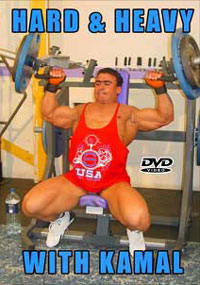

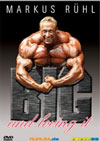

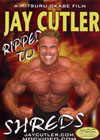
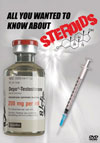
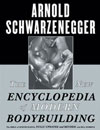
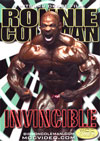
|
Testosterone: a natural tonic for the failing heart?
Chronic congestive heart failure (CHF) remains a significant cause of mortality and morbidity in the UK, accounting for 5% of acute hospital admissions and 1% of the total NHS budget.1 Coronary artery disease (CAD) and hypertension are the most commonly associated conditions. The condition is characterized by left ventricular dysfunction, impaired vascular tone and skeletal muscle abnormalities, producing breathlessness and fatigue. Neuro-hormonal and cytokine activation are self-perpetuating maladaptive responses to the failing heart, which cause further deterioration in cardiac function and increased catabolism.
The mainstay of current therapy includes diuretics and neuro-hormonal manipulation; ACE inhibitors are well established as the most important intervention for improving prognosis, and angiotensin II receptor antagonists offer a good alternative.2 More recently, reduced mortality has been demonstrated from the use of both beta-blockers and the aldosterone receptor antagonist spironolactone.3,4 Vasodilators may also provide symptomatic and prognostic benefit. However, the only therapy offering long-term survival is cardiac transplantation, which remains limited by lack of donors and recipient suitability.
There remains, therefore, a need for therapies which alleviate the suffering associated with CHF, as well as reducing mortality. Potential strategies under evaluation include anti-cytokine therapy and inhibitors of neutral endopeptidases, which prevent breakdown of natriuretic peptides. Testosterone therapy has also been proposed as a useful add-on treatment for men with CHF, although there are currently no clinical data to support this.6 In this article, we review the cardiovascular and neuro-hormonal actions of testosterone, and discuss how androgen therapy may be of benefit to men with chronic heart failure.
Gonadal function in men with CHF
No studies have sought specifically to determine gonadal function in men with heart failure. However, several small studies suggest that these patients may have relatively low androgen levels. A study of 53 men with CHF found that dehydroepiandrosterone (DHEA) levels were significantly lower than in healthy controls.7 In 17 men with non-ischaemic cardiomyopathy, testosterone levels correlated with cardiac index, and five men with severe left ventricular dysfunction had markedly reduced plasma testosterone, which normalized 2 months after implantation of a ventricular assist device.8,9 In an animal model of heart failure, hamsters with cardiomyopathy were found to have very low testosterone levels.10
These findings are perhaps to be expected given the effect of chronic disease on gonadal function. However, there is also a link between hypotestosteronaemia and stable CAD. Epidemiological data suggest that men with ischaemic heart disease have low androgen levels, and men with proven coronary atheroma have lower testosterone levels than healthy controls.11,12 In animals, castration promotes atherosclerosis while androgen therapy retards it.13 Similarly, hypertensive men have relatively low androgen levels, which show an inverse correlation with blood pressure.11 Men with CHF, therefore, are likely to have low testosterone levels, potentially exacerbating the catabolic imbalance.
Effects on cardiovascular function
There are no clinical trial data concerning the effects of testosterone on left ventricular function. In rats, androgen therapy improves coronary blood flow and increases both fractional shortening and peak myocardial oxygen consumption, thereby improving cardiac function.14 Castration results in reduced ejection fraction and diastolic dysfunction, with alteration of the isoenzyme composition of the myosin heavy chain.14
Testosterone therapy has been used to treat men with angina; the beneficial effects on both ischaemia and exercise tolerance have been demonstrated in several studies (see Table 1).
Table 1 Studies of testosterone therapy for men with angina
Numerous reports from animal studies have demonstrated the vasodilator properties of androgens in several vascular beds, both in vitro and in vivo (see Table 2). In humans, testosterone reduces blood pressure and enhances relaxation of brachial arteries; direct injection into coronary arteries produces dilatation and increased coronary blood flow.39–41 Low circulating levels of testosterone may therefore contribute to the generalized increase in vascular tone found in patients with CHF. A vasodilator effect could be important in relieving pulmonary congestion and improving peripheral perfusion. Androgen therapy could therefore also improve cardiac function by reducing pre-load and after-load and by increasing coronary blood flow.
Table 2 Animal studies of effects of androgens on vascular tone
Skeletal muscle and strength
Fatigue and poor exercise tolerance are central features of the symptoms of heart failure, and may be out of proportion to the degree of left ventricular dysfunction. Patients with CHF suffer loss of skeletal muscle mass with reduced muscle strength and endurance. Muscle fibre type and mitochondrial structure are altered, with reduction in the enzymes of the Krebs cycle and oxidative chain.42 These features may arise from the catabolic effects of neuro-hormonal and cytokine activity. Also, endothelial function is impaired in CHF, resulting in reduced peripheral vasodilator capacity and muscle hypoperfusion.
Testosterone may counter these deleterious effects both by its vasodilator action and by promoting protein synthesis and blocking the catabolic action of glucocorticoids.6 The anabolic effects of androgens are well described in healthy men, producing skeletal muscle hypertrophy and increased muscle bulk and strength.43
There have been no studies of the effects of androgen therapy on strength and endurance in heart failure. However, several small studies have evaluated testosterone therapy in elderly men; these showed improvement in grip and leg strength as well as an increase in lean body mass.44–46
Testosterone deficiency is likely to contribute to the weakness and fatigue of CHF which constitute a major aspect of the morbidity. Androgen therapy could potentially improve patient well-being by combating this.
Neuro-hormonal activity
In recent years, advances in our understanding of the role hormones play in the progression, morbidity and mortality of CHF have directed modern therapy at reducing hormonal activity. Patients have varying degrees of hormonal activation which results in a catabolic/anabolic imbalance, ranging from a rise in the cortisol/DHEA ratio to elevation of circulating catecholamines, cortisol, aldosterone and plasma renin activity.7 Levels of anabolic factors, including testosterone and insulin-like growth factor-1 (IGF-1), are depressed, and insulin resistance may develop.47,48
Although the effects of androgens on hormonal activation in CHF have not been studied, it would seem logical to oppose excess catabolism with anabolism. Testosterone has been found to increase IGF-1 levels and reduce hyperinsulinaemia and insulin resistance.39,49 In addition, in animal experiments, the increased release of atrial natriuretic peptide (ANP) which results from cardiac overload is reduced by testosterone, an effect which may have positive prognostic implications.50
Cytokine activation
It is now recognized that cytokine activation is likely to play an important role in the progression of cardiac failure. The ‘cytokine hypothesis’ of heart failure is perhaps a natural progression of the neurohumoral theory and is based on the known actions of several cytokines.51 Circulating levels of tumour necrosis factor (TNF) and interleukin-6 (Il-6) are elevated in CHF and independently predict mortality.52 The levels correlate adversely with several prognostic markers, including NYHA class, exercise tolerance and myocardial oxygen consumption, as well as plasma levels of ANP, catecholamines, endothelin-1 and angiotensin II.52–54
TNF is produced mainly by macrophages, but also by the myocardium in CHF. It impairs synthesis and promotes catabolism of skeletal muscle, and reduces testosterone production. It causes endothelial dysfunction and impairs production of NO by endothelium.55 Administration causes left ventricular dysfunction and heart failure in humans; anti-TNF therapy may improve cardiac function.56,57 Cytokines therefore appear to mediate many of the pathophysiological processes of heart failure.
The immune-modulatory properties of androgens have been well described. In various disease models (though not in heart failure), androgens have been found to significantly suppress macrophage production of cytokines both in vitro and in vivo (see Table 3). In man, androgen levels correlate negatively with plasma cytokine levels and gonadotropin therapy suppresses the high level seen in hypogonadal men.72
Table 3 Effects of androgens on cytokine activity
These findings suggest another important mechanism by which androgen therapy could improve outcome in men with CHF.
Conclusion
Patients with chronic heart failure suffer considerable morbidity as well as early mortality. They exhibit altered structure and function of cardiac and skeletal muscle and excessive activation of catabolic hormones and inflammatory cytokines. Men with CHF have relatively low androgen levels, which may contribute to the pathophysiological process. Androgen replacement therapy could potentially ameliorate symptoms by improving cardiac and vascular function and increasing strength and endurance. It may also redress the catabolic/anabolic imbalance of chronic CHF and suppress the cytokine activation which leads to progression of the disease. Clinical trials are needed to evaluate the effects of androgen therapy for chronic congestive heart failure.
Notes
Address correspondence to Dr K.S. Channer, Room 131, M Floor, Royal Hallamshire Hospital, Glossop Road, Sheffield S10 2JF. e-mail: kevin.channer@csuh.nhs.uk
If you use an article from this site, Please provide a link to WWW.BASSKILLERONLINE.COM if possible.. Thank you kindly
Come join us at the hottest Bodybuilding steroid board around
Free to join!!!!
World class bodybuilding

|
|




